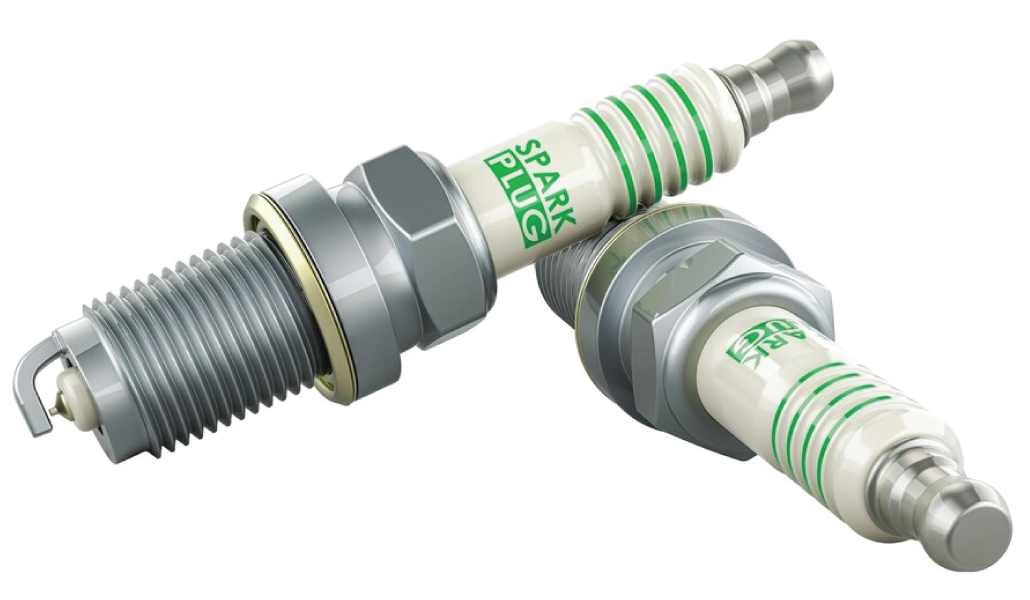
How Long Do Spark Plugs Last?
Spark plugs are essential components of your car’s engine. They ignite the air-fuel mixture that powers your vehicle. Over time, spark plugs wear out and need replacement. Understanding their lifespan helps maintain your car’s performance and fuel efficiency. Let’s explore how long these plugs typically last and when you should replace them.
How Often Should Spark Plugs Be Changed?
Spark plugs are small devices screwed into the cylinder heads of your engine. They have a gap between two electrodes. When the ignition coil sends a high-voltage current, it creates a spark across this gap, igniting the fuel-air mixture in the cylinder. This process is crucial for your car’s operation.
How long spark plugs last depends on their type and your car’s make and model. Generally, these should be changed every 30,000 to 90,000 kilometres. However, some modern cars with iridium or platinum spark plugs can last up to 100,000 kilometres before needing replacement.
Oftentimes, you might wonder, how many spark plugs does a car have? The number can vary depending on the engine type, but typically, a car has one spark plug per cylinder. Also, there are different types of spark plugs:
- Copper spark plugs: These last about 20,000 to 30,000 kilometres.
- Iridium or platinum spark plugs: These can last 80,000 to 100,000 kilometres.
How to Check Spark Plugs?
Regularly checking your ignition plugs can help you identify when they need replacing. Here’s how you can check spark plugs in a few easy steps:
- Visual Inspection: Look for any cracks or deposits on the spark plug electrodes.
- Gap Measurement: You need to measure the gap between the electrodes using a feeler gauge to ensure it meets specifications.
Signs That It's Time to Replace Spark Plugs
Identifying the signs of worn or failing spark plugs is important for maintaining engine performance. Here are a few things that show you need to replace spark plugs:
- Check Engine Light: If your check engine light comes on, it could mean your spark plugs are having issues – don’t ignore this warning.
- Poor Acceleration: If your car struggles to speed up when you press the gas, it might be because of worn-out ignition plugs.
- Unusual Noises: Listen for strange sounds when your engine is running, especially when it’s idle. Rattling or knocking noises could mean your spark plugs need changing.
- Requiring More Gas: Old plugs can make your car use more gas than usual. If you’re filling up more often, your spark plugs might be the reason.
- Car Won’t Start: If your car doesn’t start at all, it could be because your spark plugs aren’t working.
- Rough Idling: If your car shakes or vibrates a lot when it’s not moving, it might be time for new igniter plugs.
- Engine Misfires: If your engine sputters while driving, it could be misfiring due to bad spark plugs. This can lead to inefficient combustion and reduced engine performance.
- Time or Mileage: Your car’s manual will provide recommendations on how often spark plugs should be changed. It will help you decide when to change the plugs based on age or mileage.
Factors Affecting Spark Plug Lifespan
The lifespan of spark igniters depends on various factors, including the material of the electrodes, engine conditions, and operating conditions.
- Engine Maintenance and Condition: Engines that receive timely oil changes, air filter replacements, and proper fuel additives tend to have cleaner combustion chambers. This reduces carbon deposits on spark plugs, extending their lifespan.
- Type of Spark Plug Material: The material composition of the plugs significantly affects their durability. Copper spark plugs are economical but have a shorter lifespan due to faster electrode wear. Platinum and iridium plugs offer superior wear resistance. They will last longer and maintain performance over extended periods.
- Driving Conditions: Driving habits and conditions impact spark plug lifespan. Frequent short trips or stop-and-go driving can lead to quicker carbon buildup on combustion initiators, reducing their efficiency.
- Quality of Fuel and Oil: High-quality fuel and engine oil with appropriate additives can enhance engine plug longevity. Clean fuel helps prevent carbon deposits and fouling on plug electrodes. This ensures reliable ignition and optimal engine performance.
- Environmental Factors: Environmental conditions, such as extreme temperatures and humidity levels, can affect spark plug lifespan. Severe heat or cold can accelerate wear on these plugs, while moisture and contaminants in the air can contribute to corrosion.
- Vehicle Age and Design: Newer vehicles often have more advanced engine designs that can be gentler on spark plugs. On the other hand, older vehicles or those with high mileage might put more stress on spark igniters, shortening their lifespan.
If you’re unsure about checking or replacing your spark plugs, don’t hesitate to consult a professional mechanic. At ASL High-Performance AutoWorks Australia, we specialise in thorough engine and ignition plug inspections and services using advanced diagnostics tools. Our mechanics can guide you about how often spark plug changes should occur for specific vehicle types.
Our team in Tullamarine is certified and equipped with VicRoads and Arctic’s Refrigerant licences, ensuring expert handling of your vehicle. We use genuine OEM parts to maintain your vehicle’s performance. Plus, we are committed to providing transparency and customer satisfaction.
Experience unmatched automotive service for luxury and high-end vehicles. Contact us – call us on 0428 282 890 or 0396 502 890 for more information. You can book your free consultation now by emailing us at service@aslhp.com.au.




